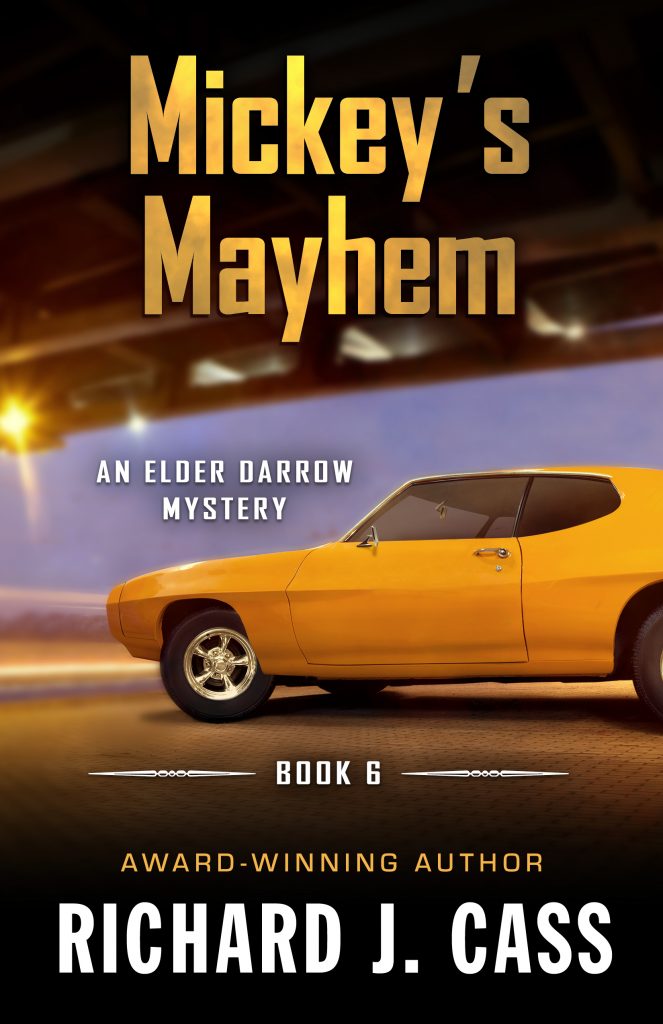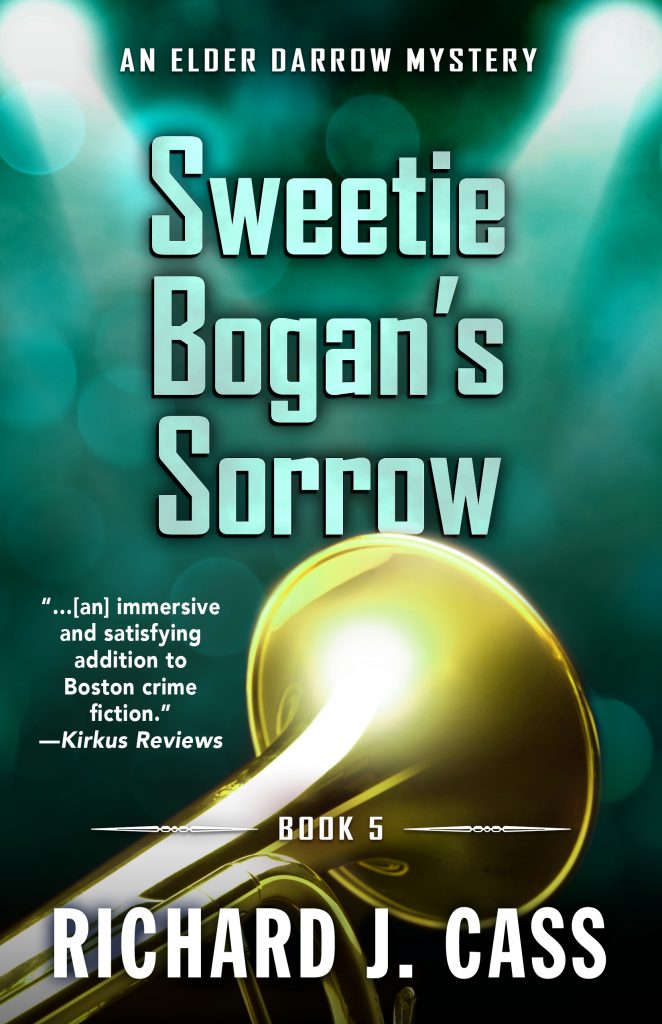Gayle Lynds: What a thrill to welcome Dick Cass, one of my husband’s and my all-time favorite mystery novelists. His award-winning Elder Darrow series is rich with jazz music, the City of Boston, and all the colorful and fascinating characters for whom one could hope. But then Elder is an ex drunk running a saloon (!), and he keeps getting involved in solving the most knotty and dangerous crimes….

I’ve been thinking about the fact that Elder Darrow, my recovering alcoholic bar owner, is what we in the trade call an amateur sleuth. All the books I’ve written so far, even ones outside the Elder series, seem to feature people without any law enforcement, military, or other investigative training who find themselves in a position where they must solve a crime, usually a murder. I started to wonder why that was.
First, probably, is the influence of the writers I grew up reading. My first exposure to crime fiction was to Travis McGee, John D. MacDonald’s creation, who in many ways was the ultimate amateur. McGee took on his “cases,” usually for money, but often when something touched his ethical or moral sense and he saw a wrong he felt he could right. He had a code, if a slightly tarnished one, but he was adamant about maintaining his amateur status (except, obviously, for the money). He only worked when his ongoing retirement was threatened by a lack of cash.
Checking my reading log for just this last month, I see that my taste still runs toward the nonprofessional protagonist: Jack Reacher, Lisa Gardner’s Frankie Elder, Phryne Fisher, Peter Ash, Blanche White. The stories range from more cozy to more violent, but the unifying factor is the amateur protagonist.
Typically, an amateur sleuth has a couple things in his or her favor:
- fewer preconceptions about how the course of an investigation goes,
- a personal stake in solving the crime,
- and the ability to bob and weave around more official attempts to solve the crime.
One thing that makes amateur sleuths attractive is that readers find it easier to imagine partnering with them. The protagonist of a political thriller, a police procedural, or a PI novel has specialized knowledge and skills to call on. An amateur is often dragged unwillingly into an investigation by circumstances and has to call on more general and personal resources than professional experience.
There’s also more space for a character’s passion to drive the investigation when it is not his or her job to solve the crime. In most amateur sleuth mysteries, this means the drive is character—the protagonist’s nosiness, urge to set things right, some personal necessity. Sometimes the sleuth is even suspected of the crime and must clear him or herself.
All this means that psychology and character are more important to the story than plot or place. Protagonist and character needs and quirks are central to solving the crime. Which, of course, allows an intelligent reader to think they could do that, too.
The concentration on the personal, the character of the sleuth, also allow for more direct treatment of social and cultural issues than a more formal investigation might. The engaged amateur sleuth has room for passion that might not be appropriate for a professional character.
Which is not to say a cop or professional investigator isn’t a help in even the most amateur investigation. Elder Darrow is certainly a rank amateur at crime fighting, but he’s supported by a Homicide detective on the Boston force who, though he doesn’t usually solve the crimes himself, provides support and context for Elder.
There are drawbacks, of course. Defining the character of an amateur sleuth requires you to balance between excess knowledge and blatant stupidity. Amateurs don’t know things that professionals do and they do things that pros cannot.
Another obvious problem with amateurs is how many murders one person can reasonably be involved in over the course of a life. It might strain credulity for the average human to be involved in enough cases to support a long mystery series. Cabot Cove had a high enough murder rate to raise anyone’s eyebrows.
My own attraction to the amateur also connects to my belief I have to maintain an amateur’s mindset to write my books. I don’t mean amateur in the sense of how I do the work: writing down the words, editing them, getting the books published. I hope to be a professional in that sense.
But I need to stay an amateur in the sense of loving my story and characters enough to go through all that work to get to an end product. The root of the word amateur, of course, comes from the Latin for love. I couldn’t do this if I didn’t love my characters and all their stories.
So, dear Rogue Reader, are you a fan of books starring amateur sleuths, too? Please leave a comment and tell us!


















































I certainly AM a fan of amateur sleuths — even now – enjoying watching reruns of MURDER SHE WROTE, MISS FISHER’S MYSTERIES, and reading about them as well. I think one “draw” is that the viewer or reader can often try to identify with the sleuth and wonder, “Could I do that too?” Now I must put MICKEY’S MAYHEM on my list of “must reads.” Thanks for being a great guest blogger for us Rogues!! … Karna Small Bodman
John and I are so looking forward to reading MICKEY’S MAYHEM! (See my intro to Dick’s blog. 🧡📚😊
Amateur sleuths are always fun, but you’re right–there are advantages and disadvantages.